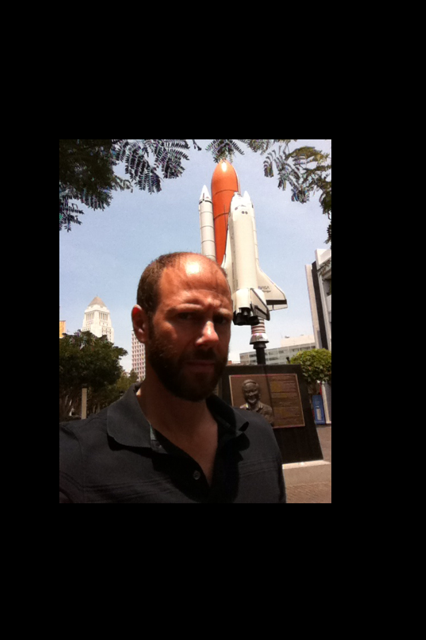Though this may at first seem odd, it is entirely consistent with the libertarian political-economic goal of total privatization -- total de-socialization -- in which everything is for sale. Everything is alienable and hardly anything is inalienable. Rather than creating and expanding public spaces -- which are the democratic spaces par excellence, in which public speech, and political debate, etc., take place, the "free market" answer is to privatize everything -- schools, public utilities, public lands, streets, water (things that, to some degree, approximate what we have been referring to as the material preconditions for an actually democratic society) -- and then people can purchase, as commodities, what the community had previously already for the most part enjoyed. The free market argument, of course, is that privatizing these is more efficient, and convenient. As we see again and again, with housing, food production, and health care, among other resources, however, this is not the case at all. A commodity economy actually gives rise to all sorts of avoidable problems. At any event, many maintain that these resources should all be privatized, and then people -- with the aid of a basic income - could purchase that which in an actually democratic society would not be alienated from the public (and managed by a small group of profiteers) in the first place. In an actually democratic society use-value would trump exchange-value.
As
one of the more extreme brands of market fundamentalism, the Milton
Friedman/libertarian position may be said to subsume the more moderate
versions of pro market-regulated economics. And this should be a
concern. In championing the total privatization of the public realm,
replacing community with a multiplicity of individuals bound solely by
market relations, as opposed to human relations, it aims to replace
community -- and the inalienable -- with commerce -- the totally alienable --
and the rule of the people with the rule of the market (which is always
the rule of those people who have market power over those who do
not). And this is not inconsistent with a basic income law. If it were,
the aristocratic -- as opposed to socialistic -- libertarians would not
argue for one, too.
Still, though, we need to elaborate the idea of an actually democratic society. What constitutes this? How much, for instance, should be inalienable? What conditions need to be created, and which need to be eliminated? Would an actually democratic society, for example, allow poverty to persist? Or, rather, would an actually democratic society work to eliminate poverty altogether? Martin Luther King, Jr., for his part, in his 1967 book Where Do We Go from Here, argued that a basic income law should be instituted in order to eradicate poverty. We should pause for a moment to ask, however: just what do we even mean by poverty? For poverty is not merely the lack of resources; poverty is characterized by the lack of socio-political power as well -- which is always relative. So, this raises a significant question:
If, as Aristotle says, democracy is the form of politics in which the poor have power, what happens if the poor obtain power and employ that power to eliminate poverty? Because they would no longer be poor and, according to Aristotle at least, democracy is the rule of the poor, one must wonder: would the elimination of poverty be the elimination of democracy? And, if so, what type of political-economy would this engender?
(This gives rise to another important issue; though most in this post-9/11 world reject Francis Fukuyama's Kojevian, quasi-Hegelian notion of the end of history, in many respects many people seem to have accepted and internalized an aspect of this notion of our having arrived at the end of history. One manifestation of this is that we don't really discuss any politics beyond democracy. Is democracy the end of our political imaginary?)
In some respects, of course, the idea of going beyond democracy (not to mention the state) -- going beyond limited, market-based democracies, eliminating poverty, for instance -- can really be regarded as a type of perfection of the idea of democracy (or, as mentioned earlier, the realization of an actually democratic society -- since, arguably, no actual democracy has ever existed).
(Note: You can view every article as one long page if you sign up as an Advocate Member, or higher).





